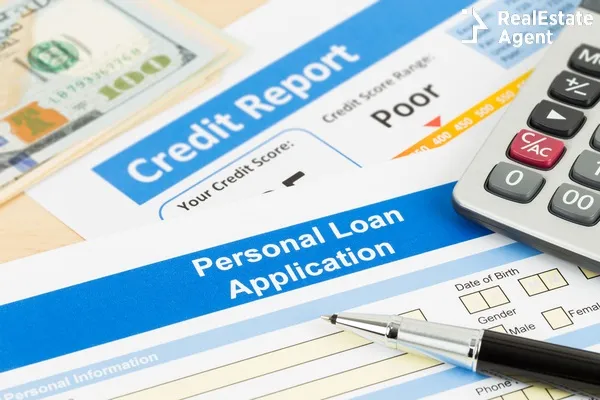
We all dream about the glorious day we move into our own home. After all the years, moving from one rental to another, the day has come when you can finally think about your own place. You have enough money for your down payment and with a good credit score, you are now able to get a home loan. The American dream of homeownership is now within your grasp.
Before that, you need to have a good credit score if you want to benefit from a home loan. But you might wonder! What is a credit score and how does it impact my ability to buy a home? If a credit score is so important in the process of buying a home, how can I improve my credit score? What is the minimum credit score that allows me to apply for a home loan?
We are going to touch base on all these questions as well as other aspects related to credit scores and home loans. This will ensure that you get the right information regarding this subject and hopefully, it will bring you closer to owning the home you always dreamed of.
What is a credit score?

What exactly is a credit score? A credit score is a data that is collected by credit bureaus about your financial accounts and history. Financial institutions developed this system as a way to protect the economic system.
It acts as a database that shows how financially responsible American citizens are. Do we pay our debt on time? Do we keep up with our bills? Are we spending more than we should? All these questions are answered through our credit score.
What is a bad credit score?
The credit score scale ranges from 300 to 850. Most often lenders would consider a bad credit score of anything below 670. But, for the most part, anything between 300 and 580 is considered a bad credit score. If you are in this range, don’t worry! We will show you how to improve your credit score in just a bit.
A bad credit score would indicate the fact that you are a riskier borrower compared with someone with a good credit score. Getting approved with a bad credit score is possible, but you might end up paying more in interest over time rather than paying less if you had a good credit score. The more you borrow the more you pay in interest, so be aware of that.
What is a good credit score?
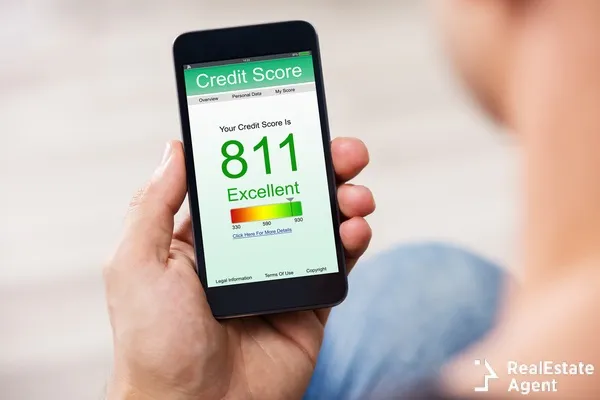
If you want to be amongst those with good credit scores you need to fall within these numbers. Anything between 580 and 699 is considered a fair credit score. Above 700 you are looking at a good credit score. Anything above 800 is considered an excellent credit score. On average, credit scores fall between the 600 to 750 range.
Good credit scores make you qualify for the best interest rates. Lower finance charges on loans and credit card balances are also some of the benefits of good credit scores.
How to check your credit score?
There are credit score services as well as free credit scoring sites that you can reach out to in order to check your credit score. By law, every 12 months you are entitled to a free copy of your credit score from each of the three credit bureaus. In order to get your free credit reports, visit www.annualcreditreport.com to get them.
It’s also important to know that checking your credit score won't hurt. When lenders check your credit scores, they might drop a few points, but when you check your credit score, you should have no issues of the sort.
How to improve your credit score?
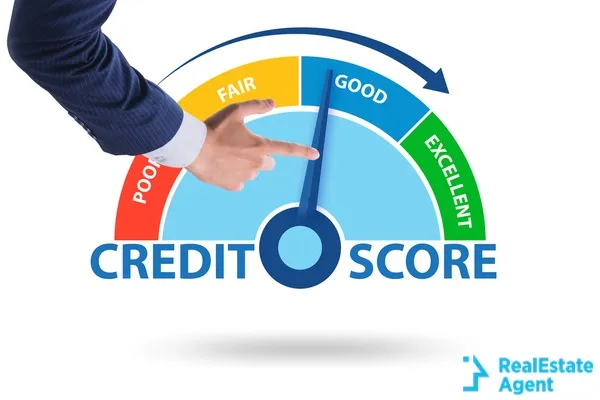
There is a minimum required credit score in the USA that would allow you to apply for all the different mortgage loan types. This is especially important because you might have a financial situation that allows you to get a home loan, but without the proper credit score, you will not be able to do so. Being aware of the way you manage your money can help you build a good credit score. Follow these simple steps in order to improve your credit score.
Thoroughly examine your credit report. Probably one of the easiest ways to improve your credit score is by examining your credit report and finding any errors that might occur. Errors are common on credit reports, so make sure all the accounts featured in the report belong to you. The biggest credit agencies offer dispute services, so you can easily report any errors. It might take a while to fix but with a bit of patience, you got yourself an easy way of increasing your credit score.
Don’t close old credit cards. Even if you don’t use your old credit cards anymore and you don’t have any unpaid balance on it, think twice before closing your card. Closing an account may increase your credit utilization ratio, therefore lowering your credit scores. Closing an old credit card while you have a balance on other cards will lower your credit score. Older average credit ages are more favorable to lenders.
Don't reach the limit amount on your credit card. Credit utilization is nothing more than the amount of credit you use within the limit that you have. If you remember it’s all about being responsible! If you are always using the full amount within your credit limit, that shows that you're irresponsible. Staying close to the credit limit is not good either so make sure you use less than 60%. The lower you go the better so keep that in mind if you want to improve your credit score.
Pay off your debt in time and keep up with your bills. Lenders are interested to know how reliable you are when paying bills. That's why you should keep up with your bills in order to obtain a good credit score. If you're behind on payments, bring them up to date as soon as possible. Keeping your credit card balance low is essential as we already mentioned, and paying off debt is important as well. Keep this in mind in order to improve your credit score.
Don’t apply for new credit cards unless it is necessary. A hard inquiry on your credit report can affect your credit score. This usually occurs when you apply for a loan, mortgage or a new credit card. Hard inquiries can remain on your credit report for up to 2 years. A credit report with many high inquiries might be considered by banks a high risk since it indicates financial difficulties. In order to improve your credit score try to avoid applying for new credit.
What credit score is needed for a home loan?

The answer to this question is, it depends! Experts say that a credit score of about 660 qualifies you for a home loan. But, there are quite a few lenders out there that would agree on loans for lower credit scores. Take into account that credit scores are used to determine interest rates and down payments as well.
A low credit score might get you a home loan but with a high-interest rate or higher down payment. On the other hand, higher credit scores benefit from better rates, loan terms and down payments. So, for top-notch rates, you should aim to improve your credit scores by following the guidelines provided in the previous section.
For example, if you want an FHA loan a good credit score makes it easier to qualify. They offer loans even for people with a credit score below 580 but at a 10% down payment, while for credit scores above 580 the downpayment is only 3.5%. The USDA loans, on the other hand, require a minimum of a 620 credit score and the downpayment is zero. There are several other ways to get a home loan with a zero downpayment, but the most conventional home loans require a downpayment and a minimum credit score of 620.
What is a good credit score to buy a house?
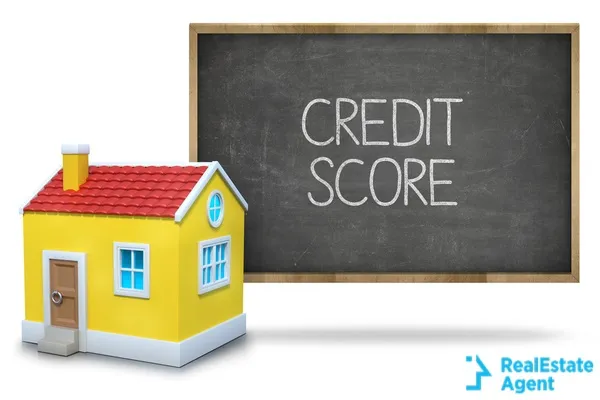
As we already mention there is no precise number to determine a good credit score to buy a house or a bad one. Overall, a good credit score will allow you to buy a house for better interest rates, down payments and better loan terms. But with the different types of loans that exist, you might pick the one that suits you and your situation better.
Look up interest rates, down payments and mortgage insurances for different home loans. Also, take into consideration the max DTI (Debt-to-income ratio) for different mortgage loans since it is used for the home loan underwriting process. The maximum amount you can afford for a house might be different, at their end, compared with the amount you initially came up with.
Also, you will need help from one of our local real estate agents, if you are looking to buy a house within a certain budget. Our skilled agents will assist you in the process of homebuying.
Average credit score by age
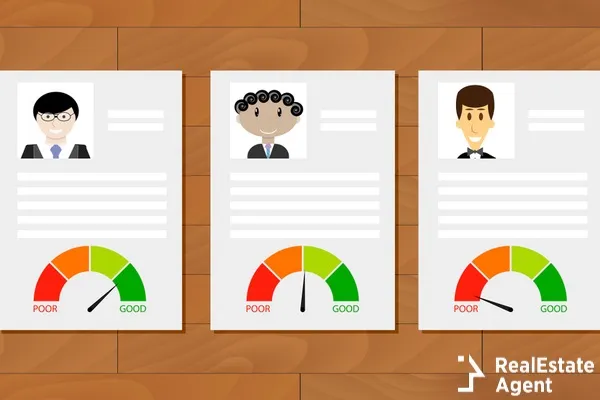
The three major credit reporting agencies made a list of average credit scores by age. This list is provided to lenders to help evaluate the risks of loaning money or extending credit to people. The list is as follows:
Age Credit Score
18-24 638
25-34 652
35-44 659
45-54 685
55+ 724
Conclusion
While there are so many home loans out there from which you can choose, your credit score plays an important part if you want to qualify for one. Your financial responsibility will not only impact your personal life in a positive way, but it will also impact the way lenders see you. Build a high credit score that will help you buy the house you always wanted.
If you like what you read in this article, let us know in the comment section. We would love to hear your feedback!
















Have a question or comment?
We're here to help.